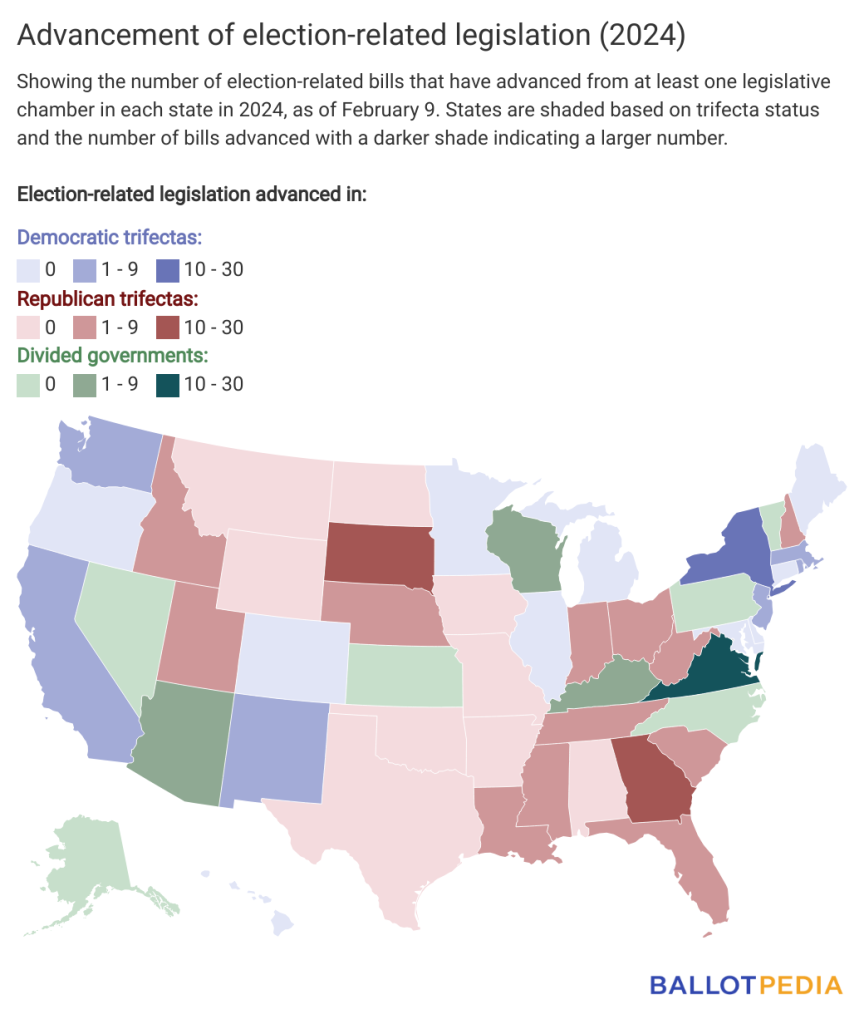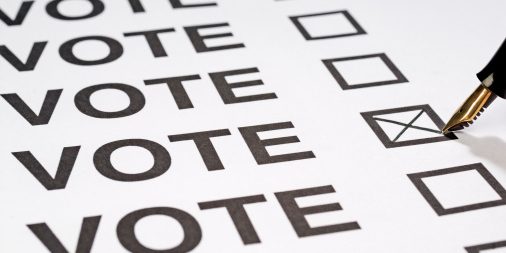Legislators in Virginia have advanced 24 election-related bills out of at least one chamber of the legislature so far in 2024, including 15 bills that have crossed over since the beginning of February. As of Feb. 9, Virginia trails only New York (29 bills) in terms of advancing election-related legislation. Two other states, Georgia and South Dakota, have advanced at least 10 bills.
In Virginia, nine of the bills voted out of at least one chamber make changes to elections in specific jurisdictions only, typically by amending or altering a municipality’s charter. Other legislation that is advancing includes HB1003, which requires election officials to mail notice of a change in polling locations to voters at least 30 days before an election, and HB939, which prohibits anyone from carrying a firearm within 100 feet of a number of election-related facilities such as a meeting place for a local electoral board, ballot drop-off locations, and voter registration offices. Virginia has a divided government.
New York, a Democratic trifecta state, continues to be the most active legislature in advancing election-related legislation, although no new election laws have been adopted in the state yet this year. To read more about New York’s legislative activity, see this update.
Georgia (11 bills) and South Dakota (10) have advanced the next highest number of election-related bills. Both states have Republican trifectas.
In Georgia, notable legislation includes SB355 which prohibits the use of ranked-choice voting in the state. The bill passed the Georgia Senate 31-19 on Jan. 26. No jurisdiction in Georgia currently uses RCV, but military and overseas voters use ranked ballots when voting in runoff elections. The legislation makes an exception for these voters. To read more about ranked-choice voting legislation so far this year, see this update.
In South Dakota, SB17, which was approved by the state senate 31-2 on Jan. 23, would remove a 30-day residency requirement before being able to register to vote. The requirement was originally implemented in 2023, but the statute as written conflicts with aspects of federal election law and the new bill was requested by Secretary of State Monae Johnson. Another bill, SB20, which passed the state senate 21-12 on Jan. 19, would make it a crime to threaten or intimidate election officials and workers.
No other state has advanced more than 10 election-related bills so far this year.

Other links:



